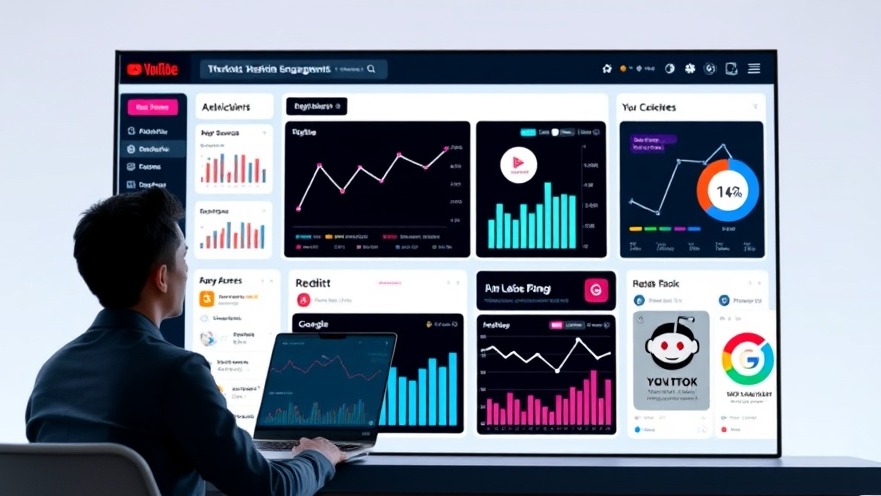
Understanding the Shift in Google's Functionality
In a world driven by search engines, Google has transformed from a simple search tool into a complex AI-driven engine. The video How To Train Google's AI To Send You Customers sheds light on how brands can adapt to these changes to remain visible. One of the dramatic shifts discussed is how Google's AI features are evolving to provide more curated and comprehensive answers to user queries, effectively changing the landscape of search engine optimization (SEO). As consumers increasingly turn to Google for direct answers rather than links, companies must pivot their strategies to ensure they are part of these AI-generated lists.
In How To Train Google's AI To Send You Customers, Neil Patel discusses critical insights about navigating Google's evolving search landscape and how businesses can adapt their strategies to attract customers effectively.
What's Happening Behind Google's AI Curtain?
When examining Google's algorithmic shift, it's essential to understand how it pulls information and what that means for businesses. According to the video, there's been a huge uptick in daily searches—from 8.5 billion to 13.7 billion. This massive growth is propelled by an increase in question-based searches, highlighting a key insight: consumers are no longer satisfied with just links to content; they desire direct answers, swiftly delivered. This evolution represents a unique opportunity for businesses to leverage Google’s AI, particularly in ensuring their content is deemed trustworthy and included in these AI overviews.
The Concept of Generative Engine Optimization (GEO)
As outlined in the video, businesses can no longer rely solely on traditional SEO techniques. Now, it's about training AI to recognize and cite your brand. This practice, termed Generative Engine Optimization (GEO), focuses on strategically positioning your content as the go-to information source. Understanding that Google's AI treats content more like a source of authority can empower marketers to adjust their strategies. They must ensure their branding is front and center in these new search formats, which requires a deep understanding of how Google's algorithms operate.
Adapting to Google’s New Search Dynamics
To get cited by Google's AI, businesses need to take action. A three-step approach involves researching competitors using tools like UberSuggest. By examining which key terms drive traffic to competitors and identifying gaps in your content, businesses can strategically create more informative and engaging content tailored for AI consumption. More than just words on a page, this content must be rich in multimedia formats like videos and infographics, which are more engaging and effective for AI integration.
The Importance of Semantic Positioning in Content
One pivotal takeaway from the video is the necessity of semantic positioning. It's not just about matching keywords anymore; it's about ensuring that the context and connections that keywords have with broader topics are robust. Marketers must provide thorough, in-depth answers that encapsulate the thought processes behind user queries. This richer content makes companies more likely to be cited by Google's AI. In this evolving landscape, semantic positioning is a stronger indicator of online success than merely ranking high in search results.
Building Long-term Brand Equity Through AI Citing
While many companies remain focused on traditional metrics of success such as traffic and rankings, shifting the focus to brand mentions and citations can yield greater rewards. As indicated in the video, becoming a brand that consistently gets cited in Google's AI results can enhance overall visibility and trust. With 90% of consumers being introduced to new brands through Google's organic results, the importance of being 'seen' in these AI-driven responses cannot be overstated. Those listed in AI responses gain recognition even without direct clicks, allowing brands to plant subconscious seeds in the minds of consumers.
Emphasizing the Impact of Visual Content
Engaging visual content is not just an afterthought; it's crucial for brands seeking AI mentions. As the video indicates, multi-faceted content that includes videos, infographics, and interactive elements stands a better chance of being noticed and cited by Google’s AI. Brands should consider how they can diversify their content formats to enhance engagement and meet the evolving preferences of users. Coupling engaging visuals with insightful content can significantly boost a brand’s authority and create a more compelling user experience.
 Add Row
Add Row  Add
Add 




Write A Comment